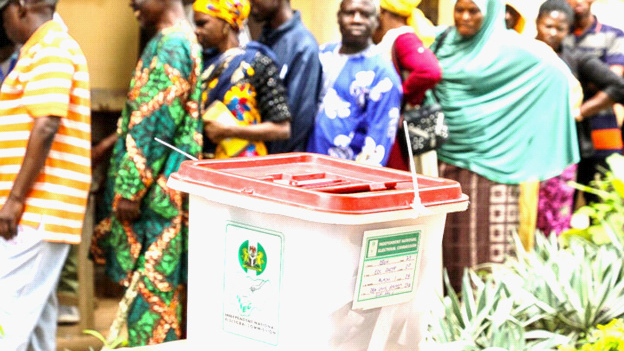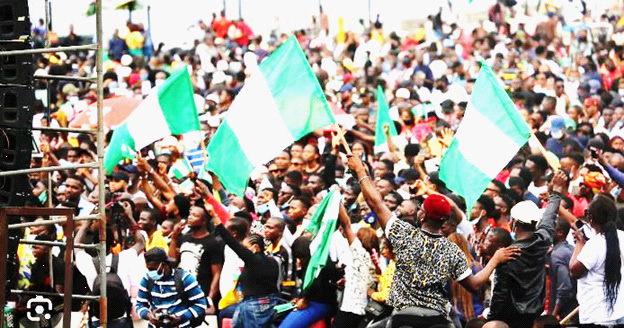THIS is the text of a Keynote Address delivered at the Accra International Conference Centre, Accra, Ghana.
You have chosen an intellectually stimulating theme for your dialogue: Why Democracies Die.
According to your letter of invitation, your intention in this gathering of distinguished policy makers is to interrogate the structural and systemic drivers of democratic decline across Africa, rising authoritarianism, institutional fragility, and shrinking civic space and explore how democratic systems are weakened and dismantled.
Let me make some clarifications and express my concerns before I proceed with my comments to this distinguished gathering. I assume that my keynote address is meant to paint some wide brush strokes across the thematic areas of concern which you have identified. The heavy lifting and the deepening of your understanding of these themes will be undertaken by the experts, men and women, in both the laboratory of theory and those in the field of action. I know we will benefit from those who have been there, seen it all, and their presence and experiences should further enrich your conversation.

Only last week, President Jonathan made the startling revelations of truths that had been hiding in plain sight in Nigeria, to the effect
that the Nigerian political scene was full of traitors and charlatans. He has the scars of betrayal to show. This is not unexpected because, whereas every other profession, from barbers, soldiers, cooks, priests, electricians, mechanics, etc., all require some certifications, politics is the only field that requires any certification or qualification. But let me not get ahead of myself.
I am a bit worried by the tone of pessimism implied in your choice of theme. First, when you say, How Democracies Die, you assume that there is a result of the post-mortem that is the result of a diagnosis of how democracies die. Of course, one might be tempted to argue that, given the variation in both perception, definition and practice, and given the shades and contours of the landscape, we could ask, which Democracy are we talking about? Context and content both matter here.
For example, music is music, and it has genres. However, Jazz is not Calypso, Ghanaian highlife is not the same as Nigeria’s Juju, Hip-Hop is not Pop or Reggae, Funk is neither Rock nor Jazz. Each of these genres elicits different emotional responses and has different audiences.
Against this backdrop, we might pause the question, such as, which Democracy’s death are we forecasting? Is it the American, Chinese, African or Asian variants? The hallmark of Democracy today is multipartyism, elections and term limits. For example, there are so-called rival political parties in China, Cameroon, Uganda and Rwanda, but they exist only in name. These parties and their so-called leaders know that they are only toys and sidekicks and have no rights of their own. They participate in elections as part of the pantomime and the charade of Democracy.
So, which Democracy’s death are we talking about? Do any of these political parties ever hope to stand against the incumbent without consequences? So, Africa continues to wallow in a culture of self-deprecating, self-loathing and self-flagellating lamentations, wondering when we shall ever catch up with the West. Using such Western liberal Democracy models, such as multipartyism, will always leave us wallowing in self-doubt. Opposition parties and members are enemies of the state!
It is this patronising self-righteousness that enabled President Obama to stand here in Accra in June 2012 and pontificate that Africa needed strong institutions and not strong men! Not unexpectedly, he received standing ovations. Yet, no one bothered to ask President Obama whether there was a necessary contradiction between strong men and strong institutions. Or whether weak men had built any strong institutions anywhere. Then, as now, to me, President Obama’s irritating pontification merely exploited the arrogant and condescending manner that Americans and Europeans have often viewed Africa and its development, deliberately ignoring the sabotaging and complicit roles in undermining our efforts.
For them, Africans remain the white man’s burden. They see our underdevelopment as a character flaw. Ignoring exploitative historical processes that have led them to where they are and left us where we are, we are often made to feel inferior. They ignore the issues whose backs and sweat their so-called strong institutions were built upon. Perhaps this feeling that we are failing may have helped the organisers of the Conference to frame this Conference as a call to Democracy’s funeral rites.
Am I, therefore, right to assume that the theme of this conference has been inspired by the book, How Democracies Die, authored by two American political scientists, Steven Levitsky and Daniel Ziblatt? Although many Africans, as usual, find inspiration in this cynical view of democracy, we forget that the book is a reaction to Trump’s ascent to power in the United States of America. It is not to deny that there are lessons for us in the book. Rather, the issue is that African scholarship must find reasons to focus on Africa’s historical and cultural histories, appreciating that even after over 200 years of exploiting others, democracy is still a work in progress everywhere. We must look inwards for our own flaws that could make our own democracy vulnerable.
In the course of assessing our progress with Democracy, we cannot ignore the savagery, brutality, and bloodshed that are now woven into the fabric of our legacies as countries and a continent as part of our past. Nor can we ignore the extent to which military rule arrested our march to Democracy on the continent.
Propelled by false narratives of a missionary zeal to drive progress, the military marched into statehouses across the continent, claiming that they had come to redeem their people. However, years of military brutality and bloodshed through endless coups and countercoups across Africa fractured the Democratic ecosystem, destroying the foundations of our culture of human rights, free Media, a functional and effective Bureaucracy, Judiciary, Constitutions and Legislative Assemblies, etc.
Years of misrule resurrected and deepened ethnic consciousness as ethnic blocks sought to use the military to institutionalise their hegemony. Subsequently, in the 90s, after the so-called end of history, half-hearted plans to return our countries to the path of Democracy were often marred by the blind ambitions of military autocratic dictators mutating into false Democrats. In my view, debates about the quality of our Democracy must be measured against the backdrop of this convoluted history.
With all its structural flaws, Africa’s march to Democracy is seemingly unstoppable. Africans know where they have come from; the future may be uncertain, but they have no hope of returning to the Egypt of autocracy and dictatorship that has been their lot since independence. Our two countries, Nigeria and Ghana, remain the best examples of this malfeasance.
Today, our people are hungry; they are still poverty-stricken and are living in destitution. Yes, Democracy has not delivered what it promised to them. Yes, Democracy has not made them safe. Yes, Democracy has not ended years of oppressive and suffocating corruption. Yes, our people are still caught in the cusp of violence. Yes, Democracy has not educated them; it has still left them sick. Yet today, our people have nailed their hopes for progress and development on the mast of Democracy despite these very strong headwinds.
To be continued.


